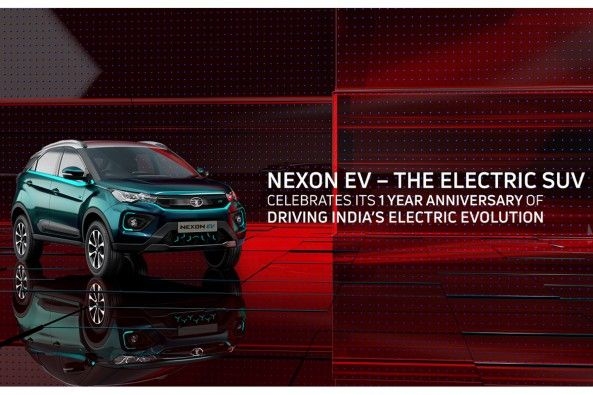General Help
Get information about our website or Droom services
Tata Motors has silently increased the price of Nexon EV in the Indian market. Just a couple of days back, the company celebrated the first anniversary of the all-electric SUV in the country while also announcing that it has sold nearly 3000 units with a market share of 64 percent in the domestic market. Tata Nexon EV is offered in three variants: XM, XZ+ and XZ+ LUX. The entry-level XM trim remains unaffected by the price hike while the XZ+ and XZ+ LUX witness a rise in price by Rs 15,000 with new pricing starting at Rs 15.40 Lakhs and Rs 16.40 Lakhs (Both Ex. Showroom), respectively.

It is not the first time that Tata Nexon electric has seen a surge in price as last year in October too the price had shot up. However, despite the escalation in price twice, it is still the most affordable vehicle in its segment against the Hyundai Kona and MG ZS. Tata Nexon EV has performed remarkably well in the Indian market despite the lack of proper electric infrastructure and charging stations. Originally launched in January 2020, the SUV crossed the 1000 units sales milestone in August 2020 in a time span of seven months while it took only four months (December 2020) to achieve the 2000 units milestone. As a matter of fact, the Nexon EV took even less than two months to touch the 3000 units sales mark, which in itself is a huge feat and speaks volumes about its rising popularity in India.
Talking about the performance of Tata Nexon EV, it delivers a top power of 129bhp and peak torque of 245Nm from an electric motor which is paired to a 30.2kWh lithium-ion IP67 battery. The electric motor is linked to a single-speed gearbox which propels it to do a 0-100kmph sprint in merely 9.9 seconds. The SUV has a driving range of 312 kms in a single charge which is considerably decent for the urban buyers. Tata Motors has equipped the Nexon electric with a couple of driving modes namely Drive and Sport. The power output gets a boost of upto 60 percent in the Sport mode. The company has plans to have as many as 700 charging stations by March 2021, which is just double of the current number.